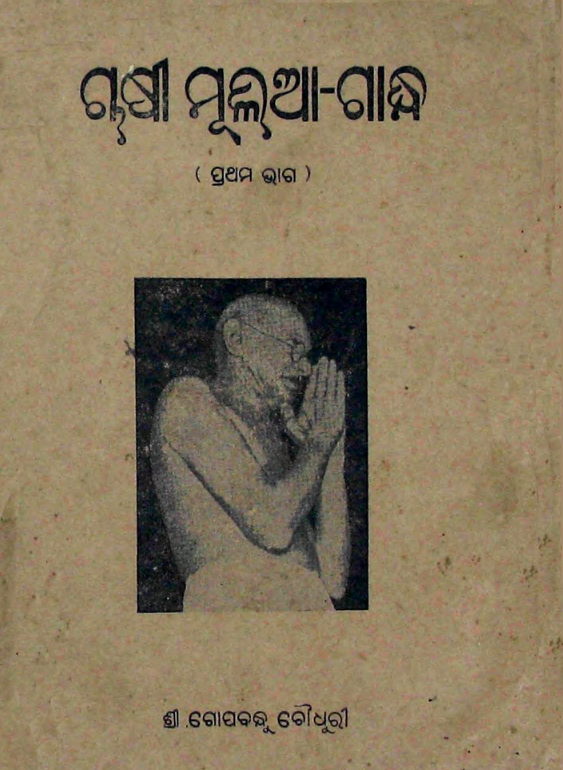Published in 1949, Chasi Mulia Gandhi by Gopabandhu Choudhury stands as a significant biography that celebrates the life and ideals of a remarkable figure in Indian history. Often referred to as the Mahatma of the Farmers, this work brings to light the struggles and triumphs of an individual who dedicated his life to the upliftment of agricultural communities in Odisha and beyond. The book not only chronicles the life of this hero but also serves as a reflection on the socio-political landscape of India during the tumultuous times of colonial rule.
Gopabandhu Choudhury, a prominent Odia journalist, social reformer, and nationalist, wrote Chasi Mulia Gandhi with a purpose far beyond merely recording events. The biography aims to inspire the younger generation by highlighting the resilience and determination of farmers whose lives were often fraught with hardship. The title merges the essence of Gandhi’s philosophy with rural India’s challenges, emphasizing that true leadership lies in serving the marginalized.
Chasi Mulia Gandhi focuses on the life of a farmer leader whose name has become synonymous with courage and integrity in the agrarian community. Through meticulous research and engaging storytelling, Gopabandhu Choudhury paints a vivid portrait of this leader’s early life, challenges faced during British rule, and his unwavering commitment to agrarian rights. The biography captures the essence of his struggles, documenting his involvement in various movements that aimed to improve the socio-economic conditions of farmers.
One of the most compelling aspects of Chasi Mulia Gandhi is its exploration of themes such as empowerment, justice, and social equity. Gopabandhu Choudhury eloquently articulates the leader’s fight against feudal oppression, exploitation, and the socio-economic injustices faced by farmers. Throughout the biography, readers are drawn into the leader’s world, witnessing his efforts to mobilize peasants and instill a sense of dignity and self-worth among them.
Choudhury’s writing is imbued with eloquence, poetic rhythm, and a deep emotional resonance that engages readers. His use of the Odia language not only preserves cultural authenticity but also enriches the narrative with local idioms and expressions. The lyrical quality of his prose enhances the reader’s connection with the subject matter, making the biography both informative and compelling.
Chasi Mulia Gandhi is not merely a biography; it serves as a historical document that inspires future generations to understand the significance of agrarian movements within the broader spectrum of India’s independence struggle. Through this work, Gopabandhu Choudhury has ensured that the sacrifices and contributions of farmers do not fade into obscurity. The book remains a poignant reminder of the critical role that agrarian leaders play in shaping social justice.
Books Info
| Books name | Chasi Mulia Gandhi / ଚାଷୀ ମୁଲିଆ ଗାନ୍ଧୀ |
| Author | Gopabandhu Choudhury |
| No Of pages | 227 |
| Publisher | Sri Umacharan Mohanty |
| Publication | 1949 |
| Printed At | NA |
| Distributor | NA |

